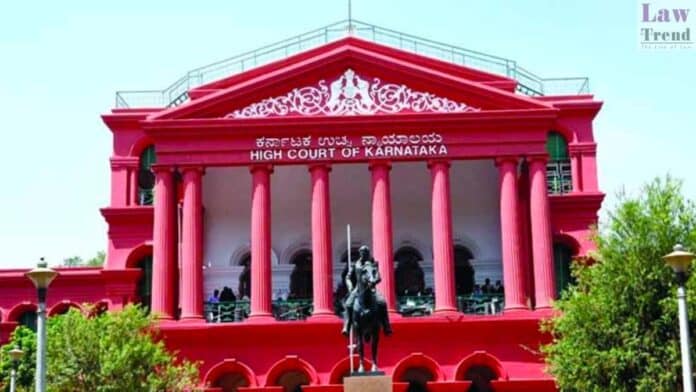The Karnataka High Court on Thursday ordered an interim stay on the Special Investigation Team (SIT) probe into allegations of multiple murders, rapes, and secret burials in the temple town of Dharmasthala, halting proceedings until November 12.
Justice Mohammad Nawaz passed the interim order on a petition filed by activists Girish Mattanavar, Mahesh Thimmarodi, Jayant T, and Vittal Gowda, who sought quashing of the FIR registered by Dharmasthala Police. The activists had previously supported former sanitation worker C.N. Chinnaiah, whose sensational allegations of mass killings and burials triggered the SIT investigation.
The controversy began when Chinnaiah, later arrested for perjury, claimed that over the past two decades, he had buried several bodies—including those of women showing signs of sexual assault—around Dharmasthala. His claims were seen as implicating the temple’s administrators.
The four petitioners, long associated with campaigns seeking justice in the 2012 Dharmasthala rape and murder case, supported Chinnaiah’s statements. They later came under SIT scrutiny after Chinnaiah presented a human skull before a magistrate in July 2025.
Investigators later found inconsistencies in Chinnaiah’s account, concluding he hadn’t personally unearthed the skull. The SIT subsequently issued multiple summonses to the activists, suspecting their involvement in fabricating evidence.
After receiving a tenth summons on October 24, the activists moved the High Court, alleging procedural violations and harassment.
Appearing for the petitioners, advocate S. Balan argued that the FIR under Section 211(a) of the Bharatiya Nyaya Sanhita (BNS) breached procedural mandates of Section 174(1)(i) of the Bharatiya Nagarik Suraksha Sanhita (BNSS).
He contended that the police should have referred the complaint to a magistrate since Chinnaiah’s statements concerned a non-cognisable offence, and that the SIT unlawfully invoked additional nine sections of the BNS—ranging from forgery (Sec. 336) to false charge with intent to injure (Sec. 248)—without proper sanction.
Balan maintained that the petitioners’ challenge targeted the procedure followed by the SIT, not the substance of the original allegations.
Opposing the plea, Special Public Prosecutor B.N. Jagadeesha argued that the petitioners had themselves pushed for a thorough investigation into the alleged murders and burials. He said that Chinnaiah later accused the same activists of coercion and of obstructing the probe.
Jagadeesha submitted that if the petitioners feared arrest, the proper remedy was to seek anticipatory bail, not a blanket stay on the investigation.
After hearing both sides, the High Court restrained the SIT from taking any coercive or investigative steps against the petitioners until November 12, and directed that they not be harassed in the interim.
The petitioners told the court that the SIT had sent nine notices via WhatsApp and email, followed by a tenth under Section 35(3) of the BNS, indicating the possibility of arrest if they appeared before investigators on October 27. They reiterated that the FIR contained no specific allegations against them.
The SIT, led by IPS officer Pronab Mohanty, was preparing to submit an interim report to the government when the High Court issued the stay. The team had planned to file a complaint report before the magistrate regarding alleged perjury and the submission of a skull claimed to be fabricated evidence.
Recent forensic findings reportedly confirmed that the skeletal remains exhumed from Dharmasthala belonged to male individuals, undermining the earlier narrative of female victims. The SIT had also conducted multiple excavations along the Netravathi River and the Banglegudde forest area, recovering skeletal remains from at least two locations.




